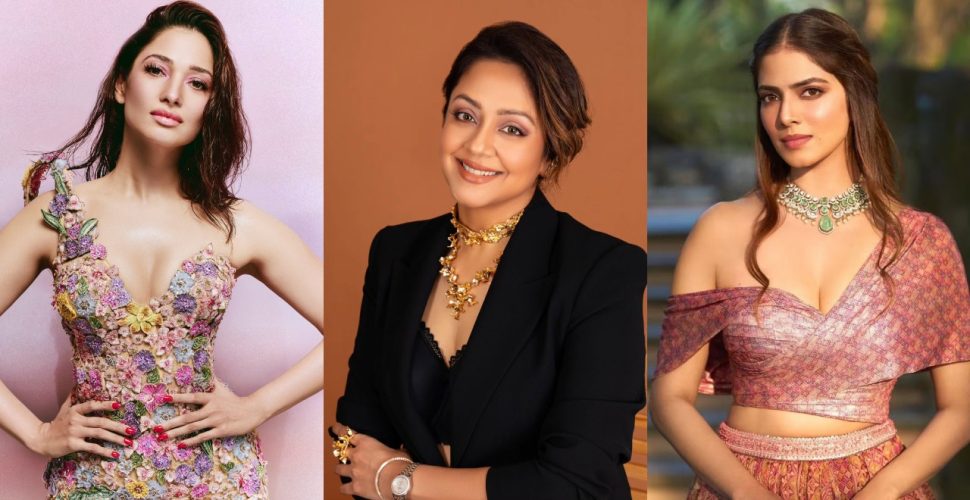
For years, Indian cinema has operated on a silent understanding. Women must play along. Look beautiful. Say little. Serve the hero’s narrative. Smile for the camera, suffer behind it. But a shift is underway. It is not polite. It is not passive. It is necessary.
A growing number of South Indian actresses are no longer content with complicity. They are speaking. Clearly. Boldly. Without apology. And what they are saying is shaking the foundations of an industry built on patriarchy, power imbalance, and objectification.
Malavika Mohanan is one of them. In a recent interview, she spoke about a grotesque yet normalized fetish in South cinema: the obsessive focus on the female navel. She described how actresses are reduced to body parts, zoomed in and dissected on screen, while their talent is casually ignored. She recalled being trolled mercilessly. First, for being “too skinny.” Then later, for being “too curvy.” It didn’t matter how she looked — someone always had a problem. Because in this system, a woman’s body is never hers. It is a battleground of expectations, criticisms, and control.
But Malavika is no longer playing by their rules. She is calling them out. And it matters.
Jyotika, a veteran who has stood the test of time not just with performances, but with principle. She spoke about what everyone knows but few dare to say. South Indian cinema remains a male-dominated institution, where female roles are often hollow, ornamental, and painfully predictable. “It was all about dancing with the hero and praising him,” she said. And she was right. Because in so many scripts, the woman exists not as a character, but as a celebration of the man.
So, she made a decision. She said no. No to roles that insulted her intelligence. No to characters that had nothing to say. She walked away from stardom-for-rent and chose a path of substance. Today, she thrives in more layered, meaningful roles because she refused to settle for less.
Tamannaah Bhatia, an actress with years of experience, a household name across Tamil, Telugu, and Hindi cinema. She recounted a moment when she refused to perform a scene that made her uncomfortable. The male superstar on set responded coldly: “Replace the heroine.” That one sentence says everything. In an industry where men are protected and pampered, a woman’s boundaries are seen as an inconvenience. Her consent is optional. Her refusal is punishable.
Tamannaah also spoke about being labelled a “milky beauty.” A nickname soaked in objectification. It flattened her identity, reduced her worth to her complexion, and erased her craft. When beauty is all that’s acknowledged, talent is rendered invisible. And dignity becomes disposable.
This is not just about three actresses. It is about an industry that still sees women as replaceable, voiceless, and secondary. An industry that demands compliance, punishes resistance, and disguises misogyny as entertainment.
What these women are doing by speaking is nothing short of revolutionary. Because they are not just exposing the problem. They are rejecting it. Loudly. Publicly. On record. They are choosing dignity over screen time. Integrity over approval. Courage over silence.
And make no mistake, they are risking a lot. This industry does not forgive women who challenge the order. But they are not asking for forgiveness. They are demanding change.
What makes this moment so powerful is that these women are not speaking from the sidelines. They are at the centre of their careers. They are visible, successful, bankable, and still, they are choosing to call out the rot. That is not just bravery. It is leadership.
This is reckoning, therefore.
South Indian cinema, and Indian cinema at large, is at a crossroads. The days of silent suffering are over. The women are no longer here to play roles written for them. They are writing their own.
And when a woman says no, no to objectification, no to erasure, no to being replaced, she is not the problem. She is the future.
Listen to her. And for once, do not look away.
